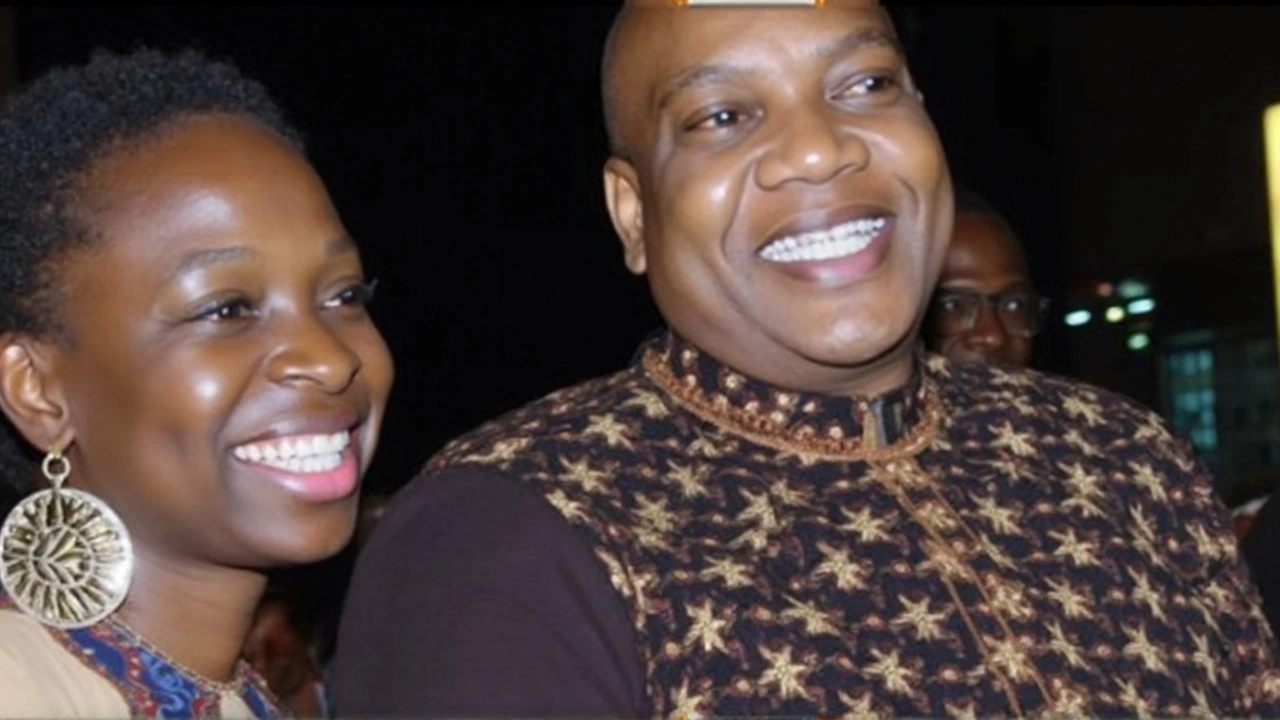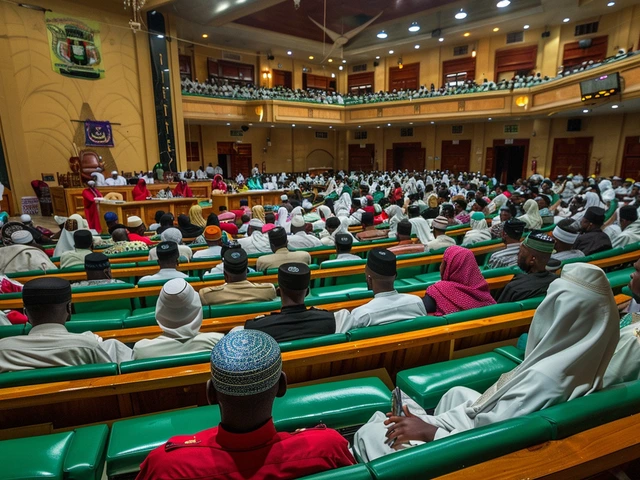In 2014, a 25-year-old political staffer became chief of staff in a brand-new ministry. Her name—Thuthukile Zuma—and her surname turned a routine personnel move into a national debate about merit, fairness, and how South Africa hires people into powerful posts.
The appointment landed soon after the general elections that year, when the Department of Telecommunications and Postal Services was created and a new minister’s office was set up. The job of chief of staff is not symbolic. It runs the minister’s private office, manages strategy and schedules, and coordinates with senior officials. It also comes with a senior salary band that media at the time placed near the million-rand mark.
Public reaction was swift. Critics said the hiring looked like nepotism because it involved the daughter of the sitting president. Supporters argued there was nothing unlawful about it and pointed out that ministerial offices often bring in their own teams after elections. Both things can be true: the rules allow flexibility for ministers, but the optics were always going to be loaded.
What sparked the outcry
First, the surname mattered. South Africans have a long memory for patronage battles, and the idea of a president’s child moving rapidly into a senior state post was always going to face scrutiny. The age factor sharpened it. At 25, even a qualified, hardworking appointee will face the question: did the system fast-track you because of who you are?
Second, the post itself sits on the border between politics and the professional public service. Chiefs of staff work in a minister’s private office, where the law gives the executive wide leeway to hire on fixed-term contracts linked to the minister’s term. That’s different from a permanent director post in the broader department, which normally requires open competition, shortlisting, competency assessments, and documented scoring.
Third, the money and seniority amplified the noise. The role is typically graded at senior management level. For many, the thought of a high-earning post going to a politically connected young appointee, without a public advert, felt unfair in a country with deep youth unemployment.
Opposition MPs asked the Public Service Commission (PSC) to look into the process. Unions and civil society voices weighed in, calling for transparency on the job grading, the recruitment steps, and the legal basis for bypassing open advertising—if that happened. The department pushed back, saying the appointment followed prescripts and fit within the rules for ministerial offices.
The rules, the grey areas, and the unanswered questions
South Africa’s hiring framework is split. The Public Service Act and its regulations set out a competitive process for career posts. But ministers can staff their private offices—chiefs of staff, media handlers, advisors—on fixed-term contracts. Those roles don’t always go to open advert, and departments often rely on delegated powers that let the minister or director-general appoint directly, provided the person meets the minimum requirements and the paperwork is in order.
That’s the grey zone. Even when direct appointments are legal, the process should still leave a clear paper trail: the job description, the grading decision, the candidate’s qualifications and experience, security vetting, and the signed delegations that authorise the appointment. Without that file being made public—or at least reviewed by an independent body—suspicions linger.
What would settle the matter? Transparency. If the department were to release, even in summary, the recruitment record—how the post was classified, what minimum competencies were required, how the candidate matched them, and whether any deviation from normal practice was approved—much of the heat would dissipate. The PSC can examine such files and issue findings. Its recommendations are influential, though not binding.
There’s also an ethical layer the law can’t fully answer. A president doesn’t sign off on a minister’s private office hires, but proximity still raises concerns about undue influence. The Public Service Regulations prohibit giving an undue advantage to family members. Proving that in a ministerial office is hard unless documents show shortcuts or unapproved deviations. That’s why documentation matters.
The story also taps into a larger struggle: building a capable, professional state while acknowledging that political principals need trusted teams. South Africa has spent years debating cadre deployment, merit-based hiring, and how to stop networks from trumping competence. When the person at the centre is young and connected, it becomes a case study in public trust.
Here’s a simple timeline of how events and reactions typically unfolded around the appointment:
- Mid-2014: A new department is created after the election, and a chief of staff is appointed in the minister’s private office.
- Weeks later: Media reports highlight the appointee’s identity, age, and the senior salary band, triggering a backlash.
- Opposition action: Requests land at the PSC asking for a probe into the process and whether rules were followed.
- Department response: Officials state that appointment powers exist for ministerial offices and that prescripts were observed.
- Aftermath: No court ruling is publicly recorded overturning the appointment, but the debate becomes part of the wider conversation about hiring and fairness in the state.
Years on, the appointment still surfaces in arguments about how the public service should work. It shows how lawful discretion, if not explained, can look like favoritism—and how, in the absence of transparent records, perceptions can harden into a verdict no department wants to carry.







boy george
Interesting take on nepotism, though the facts speak for themselves.
Cheryl Dixon
The saga of Thuthukile Zuma reads like a modern parable on power and perception. One could argue that the very act of questioning merit betrays an envy of youthful ambition, yet the optics remain a potent catalyst for public discourse. It is tempting to romanticise the notion of meritocracy when, in reality, the labyrinthine corridors of political patronage are rarely so pristine. Colourful narratives aside, the core issue is transparency, not merely the surname attached to a résumé. In the end, the debate itself may be the most valuable output of this controversy.
Charlotte Louise Brazier
I hear the anger and I also see the valid concerns about fairness. At the same time, we must acknowledge that ministers need trusted aides who understand their vision, and sometimes that means bringing in people they know well. The key, however, is to ensure that such appointments are backed by clear qualifications and documented processes, so the public can trust that competence isn’t being sidelined. If the department can release even a summary of the recruitment file, it would go a long way toward defusing the fire. Let’s keep the conversation focused on concrete steps rather than ad hominem attacks, and we might find common ground on improving transparency across the board.
Donny Evason
From a cultural perspective, the appointment highlights how societies wrestle with legacy and modernity. It isn’t just a bureaucratic decision; it’s a reflection of how political capital is leveraged within the fabric of state institutions. While the legal framework permits such hires, the moral calculus often diverges, especially in a nation grappling with youth unemployment. We should therefore champion reforms that embed meritocratic safeguards without eroding the functional flexibility ministers need. A balanced approach could preserve both efficiency and public confidence.
Phillip Cullinane
Delving into the procedural architecture, one must consider the interplay of statutory mandates and executive discretion. The Public Service Act stipulates competitive selection for career posts, yet the ministerial office regimes operate under a distinct delegation model, granting the minister authority to populate private offices via fixed‑term contracts. This bifurcation creates a procedural lacuna where documentation of competency matrices, grading rationales, and vetting protocols becomes paramount. In the absence of a transparent audit trail, stakeholders are left to infer intent, which inevitably fuels speculation about nepotistic bias. Moreover, the remuneration bracket, approaching a six‑figure annual figure, amplifies the perception of inequity, particularly against a backdrop of macro‑level youth unemployment metrics. A rigorous, published compendium of the candidate’s qualifications-academic credentials, prior operational experience, and any relevant policy exposure-could mitigate these concerns. Leveraging independent oversight, such as a PSC‑conducted peer review, would further legitimize the appointment by providing an external validation layer. Ultimately, systemic resilience hinges on codifying a best‑practice framework that mandates pre‑emptive disclosure of recruitment dossiers for senior political staffing, thereby aligning legal permissibility with ethical transparency. By institutionalising such mechanisms, the state can safeguard against both actual and perceived patronage, fostering a merit‑centric public service ethos.
Janie Siernos
We must hold our leaders to the highest standards of integrity. Anything less erodes public trust.
joy mukherjee
Honestly, I feel for the young professionals caught in the crossfire-it's tough navigating career growth when folks are quick to judge. :) Transparency would ease a lot of tension, and showing the qualification checklist could change the narrative. Let's hope for some openness soon.
Rob Chapman
Reading through the extensive dossier you posted, I see a clear pattern where procedural rigor could bridge the trust gap. If we unpack each competency criterion and map it against the candidate's documented experience, the picture becomes less about lineage and more about capability. In other words, solid evidence can transform perception, and that’s a win for everyone.